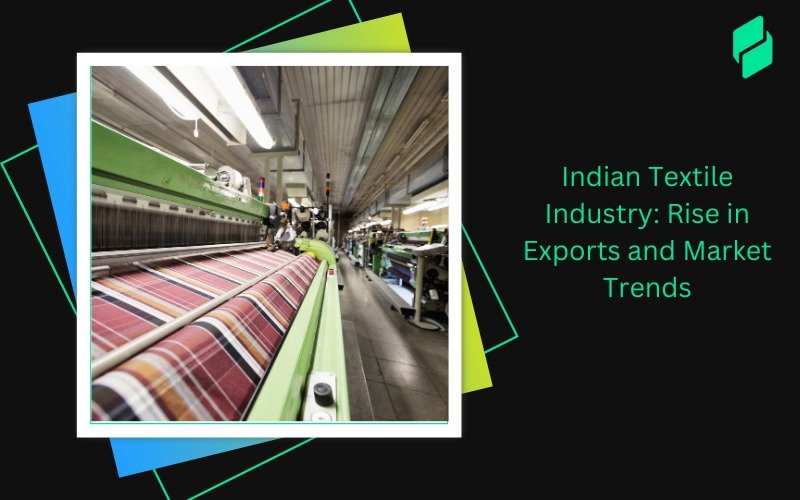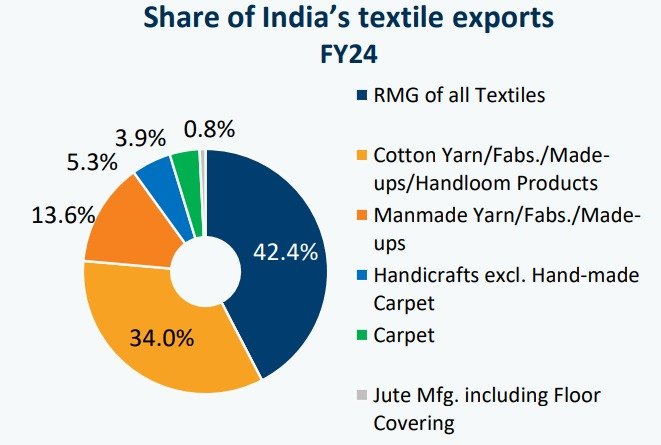
India has reported a 7% growth in textile, apparel, and handicraft exports during the April-December 2024 period strengthening the Global market position, compared to the same period in the previous year. This growth reinforces India’s position as one of the leading textile exporters globally, with the country accounting for around 4% of the world’s textile and apparel exports. The United States, European Union, and the United Kingdom together contributed 53% of India’s total textile exports in FY 2023-24.
To further strengthen the textile industry, the Indian government has implemented various initiatives. The PM MITRA Parks Scheme aims to establish modern and integrated textile infrastructure, while the Production Linked Incentive (PLI) Scheme focuses on boosting large-scale manufacturing of man-made fiber (MMF) fabric, MMF apparel, and technical textiles. The National Technical Textiles Mission promotes research and market development in the sector, and the SAMARTH Scheme offers skill training to meet the demand-driven needs of the textile industry.
For the sericulture value chain, the government introduced the Silk Samagra-2 program to support comprehensive development. Meanwhile, the National Handloom Development Programme and Handicrafts Promotion Schemes aim to provide end-to-end assistance to the handloom and handicrafts sectors, respectively.

In terms of cotton supply, the government declares a Minimum Support Price (MSP) annually, ensuring fair compensation for farmers and stabilizing cotton prices for the industry. In February 2024, the customs duty on Extra-Long Staple (ELS) Cotton was removed, and under the India-Australia Economic Cooperation and Trade Agreement (ECTA), 51,000 tonnes of duty-free ELS cotton can now be imported.
India is also expanding its global market access by signing 14 Free Trade Agreements (FTAs) and six Preferential Trade Agreements (PTAs). These agreements include recent deals with the UAE, Australia, and the TEPA agreement with European Free Trade Association (EFTA) countries such as Switzerland, Iceland, Norway, and Liechtenstein. Additionally, the Rebate of State and Central Taxes and Levies (RoSCTL) scheme is being implemented to support apparel exports, ensuring zero-rated taxation for the industry.

